Please Take Me Off the Guest List is a collaboration between three people: Nick Zinner, of the band Yeah Yeah Yeahs, provides the photographs; Zachary Lipez, of the band Freshkills, provides the essays; and Stacy Wakefield, former design director of Artforum, pulls it all together into a wonderfully designed object. It has already been noted elsewhere how rare it is for the book’s designer to have her name on the cover, but here it is earned. Zinner’s photographs and Wakefield’s design are the true highlights of this collection, which should appeal to anyone interested in book arts. Unfortunately, Lipez’s essays do not measure up to the quality of the photographs and the quality of the design elements. Continue reading “Please Take Me Off the Guest List”
NewPages Blog
At the NewPages Blog readers and writers can catch up with their favorite literary and alternative magazines, independent and university presses, creative writing programs, and writing and literary events. Find new books, new issue announcements, contest winners, and so much more!
Velleity’s Shade
This is the sixth volume in Saturnalia’s Artist/Collaboration Series. I am impressed by and grateful for publisher Henry Israeli’s commitment to making available the collaborative efforts of visual and literary artists. The books are beautifully conceived, designed, and composed, and they occupy a uniquely wonderful place in the world of small press poetry publications. Continue reading “Velleity’s Shade”
Spread the word!
Skin, Inc.
Ellis’s collection of poems, Skin, Inc, is an aggressive book to say the least. It is a statement in itself. A statement that is different and powerful. The language coursing through the veins of this collection is raw, real, and full of earnest emotion. It is calm, yet aggressive. Strong, yet tamed. One poem that really sets the tone for the first portion of the book is “My Meter Is Percussive”: Continue reading “Skin, Inc.”
Spread the word!
Present Tense
Present Tense, by Anna Rabinowitz, phases through genres, using poetry as a vehicle to explore politics, gender, culture and human nature. The book opens with a prologue, a single sentence that declares the purpose of the book and the long list of who the book is for: Continue reading “Present Tense”
Spread the word!
Sonnets
Can you pour new wine into old bottles? Well, if you are Camille Martin and the bottles are sonnets, the answer is an emphatic, "Yes." By her flexible use of the idea of the sonnet, Camille Martin has written a book that holds a pleasing balance of unity and variation. In the second sonnet, Martin seems to be speaking to the form as the beloved: Continue reading “Sonnets”
Spread the word!
Narrative 30 Below Contest Winners
Narrative has named the finalists and winners for their 30 Below Contest 2010 (All entrants in the Contest were between the ages of eighteen and thirty.):
FIRST PRIZE
Kevin González – “Cerromar”
SECOND PRIZE
Jacob Powers – “Safety”
THIRD PRIZE
Erika Solomon – “Rules for Jews in Damascus”
FINALISTS
Caroline Arden
Stephanie DeOrio
Katharine Dion
Kelly Luce
Michael Nardone
Hannah Sarvasy
Samantha Shea
Douglas Silver
Cam Terwilliger
Jessica Wilson
The Fall 2010 Story Contest, with a $3,250 First Prize, a $1,500 Second Prize, a $750 Third Prize, and ten finalists receiving $100 each. Open to fiction and nonfiction. All entries will be considered for publication. Contest deadline: November 30, midnight, Pacific standard time.
Spread the word!
Tupelo Press Recieves NEA Grant
Rocco Landesman, Chairman of the National Endowment for the Arts, announced that Tupelo Press has been approved for a grant of $20,000 to support production, publication and promotion of thirteen exceptional books of poetry, fiction, and literary nonfiction. Tupelo Press is one of 1,057 not-for-profit organizations recommended for a grant as part of the federal agency’s first round of fiscal year 2011 grants. In total, the Arts Endowment will distribute $26.68 million to support projects nationwide.
Spread the word!
Film :: Amazon Studios
According to Reuters: “Amazon starts Amazon Studios offering almost $3 mil for scripts and films; Warner Bros has “first-look” rights to produce.”
Spread the word!
Glimmer Train September Fiction Open Winners :: 2010
Glimmer Train has just chosen the winning stories for their September Fiction Open competition. This competition is held quarterly and is open to all writers for stories with a word count range between 2000 – 20,000. The next Fiction Open will take place in December. Glimmer Train’s monthly submission calendar may be viewed here.
First place: Lydia Fitzpatrick [pictured] , of Brooklyn, NY, wins $2000 for “In a Library, in Saltillo.” Her story will be published in the Winter 2012 issue of Glimmer Train Stories.
Lydia Fitzpatrick [pictured] , of Brooklyn, NY, wins $2000 for “In a Library, in Saltillo.” Her story will be published in the Winter 2012 issue of Glimmer Train Stories.
Second place: Andrea Scrima, also of Berlin, Germany, wins $1000 for “Leaving Home.”
Third place: Brenden Wysocki, of Marina del Rey, CA, wins $600 for “A Dodgy Version.”
A PDF of the Top 25 winners can be found here.
Short Story Award for New Writers Deadline: November 30
This competition is held quarterly and is open to all writers whose fiction has not appeared in a print publication with a circulation over 5000. No theme restrictions. Word count should not exceed 12,000. (All shorter lengths welcome.) Click here for complete guidelines.
Spread the word!
Can Technology End Poverty?
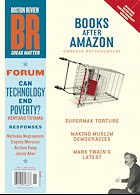 The lead essay in the Nov/Dec 2010 issue of Boston Review forum by Kentaro Toyama, Can Technology End Poverty?, is available full-text online with responses from Nicholas Negroponte, Dean Karlan, Ignacio Mas, Nathan Eagle, Jenny C. Aker, Christine Zhenwei Qiang, Evgeny Morozov, and Archon Fung and a final reply by Kentaro Toyama. The forum is also open to reader responses.
The lead essay in the Nov/Dec 2010 issue of Boston Review forum by Kentaro Toyama, Can Technology End Poverty?, is available full-text online with responses from Nicholas Negroponte, Dean Karlan, Ignacio Mas, Nathan Eagle, Jenny C. Aker, Christine Zhenwei Qiang, Evgeny Morozov, and Archon Fung and a final reply by Kentaro Toyama. The forum is also open to reader responses.
Spread the word!
Free Tanka Teachers Guide
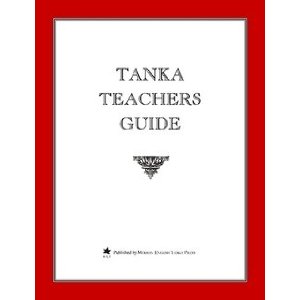 Offered as a free PDF download from the Modern English Tanka Press (MET Press), Tanka Teachers Guide contains primary materials and resources about tanka poetry which educators and students may copy without seeking permission (Creative Commons License).
Offered as a free PDF download from the Modern English Tanka Press (MET Press), Tanka Teachers Guide contains primary materials and resources about tanka poetry which educators and students may copy without seeking permission (Creative Commons License).
Modern English Tanka Press is dedicated to tanka education and welcomes innovative uses of their print and online resources: “We want to facilitate the use of our publications to the maximum extent feasible by educators at every level of school and university studies. Educators, without individually seeking permission from the publisher, may use our publications, online digital editions and print editions, as primary or ancillary teaching resources.”
Spread the word!
580 Split – 2010
An exciting issue, beginning with Daniel Backman’s front cover “architectonic collage” (“Oakland in Transit”). Backman’s collages, he explains in the note that opens the issue, “envision a city in a constant state of transformation” and exhibit “the themes that have traveled with me throughout my experience as an artist, a designer, and a city dweller.” Continue reading “580 Split – 2010”
Spread the word!
Albatross – 2010
This slim issue moves its poetry seamlessly from religion to nature to philosophy. Albatross is a small, chapbook-like magazine, stapled together in the center, featuring only poetry. On the inside of the front cover is a quote from Samuel Taylor Coleridge, Continue reading “Albatross – 2010”
Spread the word!
The Allegheny Review – 2010
One can hardly believe that the astounding works within Allegheny Review’s 28th volume is all from undergraduates. The wording might be a bit self-consciously ornate; which can be put to youthful enthusiasm. However, there is an explosion of images and modifiers, working toward emotional complexity – the effort succeeds; entrancing, engaging and enchanting the reader. Continue reading “The Allegheny Review – 2010”
Spread the word!
Arc Poetry Magazine – 2011
In “The lure of the gallery wall,” one of the excellent conversations in the Canadian Arc Poetry’s “Poet As Art Thief” issue, the poet John Barton says writing ekphrastic poetry is “a way to expand our world, especially as so much of 20th-century poetry seems overwhelmingly concerned with the self.”
Spread the word!
Cave Wall – Summer/Fall 2010
Cave Wall’s latest issue invites us, in Robert Bly’s poem “Flowers with Holes,” to “look for / The odd places / In each other / And write poems about them.” The issue begins with an editor’s note that describes the poems in this issue as endeavoring to “embody that quest to communicate what moves us most deeply.” The style of communication varies, from the narrative free verse poem “Kung Pao with You on the Anniversary of Your Suicide” by Elizabeth Volpe which communicates with a deceased friend through the poem, to Sara E. Lamer’s ode to decay, “Compost.” Continue reading “Cave Wall – Summer/Fall 2010”
Spread the word!
The Evansville Review – 2010
Fine sonnets, formal verse, and modern poetry inhabit The Evansville Review. The covers of the mag feature a blue glossy finish framing a woman who is arching her back in front of some stained glass icons, it is very formal and a slightly theatrical painting, titled “Mariana of the Moated Grange” by Millais. Besides poetry, inside the elegant covers are eight pieces of short fiction and three items of nonfiction. The short fiction tends to have an other-worldly tension about it, a dreamy quality mirrored in the painting. Continue reading “The Evansville Review – 2010”
Spread the word!
Limestone – 2009
The 2009 edition of Limestone is titled “Legacy Obscura,” which I assume is a reference to the “camera obscura,” a device used to project images onto a screen, which led to the invention of photography. It’s a relevant title. This issue is ripe with photography and other visual arts, as well as poems and stories that create verbal images of legacy. What is a legacy? Is it something we’re born with? Do we carry it with us? Editor Rebecca Beach says “what we are and what we will be hinges on our past.” This journal examines that past. The past is where we come from and informs the future. The speakers of these poems and stories share their personal memories, yet they are universal and timeless. Continue reading “Limestone – 2009”
Spread the word!
Many Mountains Moving – 2010
Over the years, the publication calendar for Many Mountains Moving has seemed erratic and unpredictable, at best, yet it’s always worth waiting for. This issue features a special section of “ecopoetry,” with selections by two-dozen poets, followed by an “ecopiety essay”; the magazine’s flash fiction and poetry winners, runners up, and finalists from 2008 and 2009; 9 short stories; four nonfiction contributions; “mixed genre” work (flash fiction/prose poems) by two contributors; and a general section of poetry with the work of another dozen and a half poets, including several selections from Henry Israeli and Shpresa Qatipi’s recent book of very fine translations of the work of Albanian poet Luljeta Lleshanaku; and one review. Continue reading “Many Mountains Moving – 2010”
Spread the word!
Mythium – 2010
Mythium is a journal that publishes poems, fiction, and nonfiction written by writers of color. Its mission is to celebrate the cultural voice. The content is as varied as there are ethnicities. From African American and Native American writers with violent and unjust ancestral histories, to more recent immigrants of Latin, Asian, and African heritage (and then some) looking to find a place in a new America, it’s natural to assume that this magazine is a collection of many voices and many stories. Some of the material is depressing. Some is hopeful. All of it is interesting. Continue reading “Mythium – 2010”
Spread the word!
River Teeth – Fall 2010
An issue you can definitely sink your teeth into. “We finally have work by Phillip Lopate between our covers,” says editor Joe Mackall. Lopate’s “In Defense of the Essay Collection,” is preaching to the choir in some ways, River Teeth’s readers are already interested in the genre, as it is, after all, a journal of nonfiction narrative. But, it’s a great read nonetheless. Lopate is in good company. The 11 other essays in this issue are equally worthy of attention. Continue reading “River Teeth – Fall 2010”
Spread the word!
roger – Spring 2010
If I have any complaint at all about roger, and I really only have one, it is that the wonderful translations by Anny Ballardini, Patrizia de Rachewiltz, and Jennifer Youngquist (of work by poets Paolo Ruffilli, Cesare Pavese, and Etienne Lero) do not include the originals and the contributors’ notes do not include the poets’ bios. It makes for good reading to find these well executed translations of poets I might not otherwise have an opportunity to read among the work of Jim Daniels, Sandra Kohler, Charles Harper Webb, and many other competent, though lesser known writers. But, I would like to be able to read the originals and to know something about the poets. Continue reading “roger – Spring 2010”
Spread the word!
St. Petersburg Review – 2009
“Speaking the same language through literature” are the words spread in light gray block letters over a dark gray background on the cover of St. Petersburg Review. This publication is “independent and international”; it was founded and is headed by an American, Elizabeth Hodges. She has traveled to Russia numerous times and participated in several Summer Literary Seminars at St. Petersburg. Among the associate editors, staff and advisory board are many American-looking names, many who by their bios have traveled to or live in Russia. Others are native Russians or “citizens of the world.” Continue reading “St. Petersburg Review – 2009”
Spread the word!
Skidrow Penthouse – 2010
Any Table of Contents where the names Simon Perchik and Catherine Sasanov appear is a good sign! These favorites of mine are joined by more than 50 other poets and 5 fiction writers whose work comprises an engaging issue of this magazine. Continue reading “Skidrow Penthouse – 2010”
Spread the word!
Southern Poetry Review – 2010
One of poetry’s most useful, satisfying, and unique characteristics is the power to capture life’s small philosophical or metaphysical realities with a kind of precise, economical, focused – and uncanny – accuracy. These are the sorts of poems at which this small journal seems to excel. Poems that embody both physical and emotional immediacy. Masters of the art represented here include David Wagoner, Margaret Gibson, Carl Dennis, and Kelly Cherry, who are joined by more than two dozen others who clearly also excel in this arena. Continue reading “Southern Poetry Review – 2010”
Spread the word!
Willard and Maple – 2010
Willard and Maple is a literary and art magazine produced by Champlain College. Continue reading “Willard and Maple – 2010”
Spread the word!
Penguin Classic Postcards
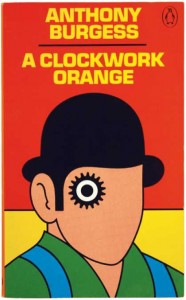 Penguin Books now has a collection of 100 postcards, each featuring a different and iconic Penguin book jacket. The Los Angeles Times has photos of a selection of these classic images.
Penguin Books now has a collection of 100 postcards, each featuring a different and iconic Penguin book jacket. The Los Angeles Times has photos of a selection of these classic images.
Spread the word!
NANO Fiction Prize Winner
 Michael Palmer, winner of the Second Annual NANO Prize, has his winning piece, “Miles,” in the newest issue of NANO Fiction (v4 n1).
Michael Palmer, winner of the Second Annual NANO Prize, has his winning piece, “Miles,” in the newest issue of NANO Fiction (v4 n1).
Spread the word!
The Immortality of Fairy Tales
“About 50 years ago, critics were predicting the death of the fairy tale. They declared it would fizzle away in the domain of kiddie literature, while publishers sanitized its ‘harmful’ effects. Academics, journalists and educators neglected it or considered it frivolous…” (Read the rest: Why Fairy Tales are Immortal by Jack Zipes from Globe and Mail.)
Spread the word!
Poets Introducing Poets :: dg nanouk okpik
 Poet Lore‘s Fall 2010 issue introduces the poems of native Alaskan dg nanouk okpik in their feature Poets Introducing Poets. Poet Lore Editors writer: “Nowhere are the effects of climate change more palpable than in the far North. Ms. okpik’s ritualistic narratives – steeped in Inuit folklore and sobered by the rudimentary predicaments of survival – conjure up a way of life as miraculous and endangered as the Arctic itself. In ‘Oil is a People,’ she writes: ‘I see the pipeline cracking, the Haul road / paved. I fall asleep as you are dancing / with the dead….’ Is this a vision? A warning? The eerie lines do what poetry does best: unsettle us with the truth – and maybe move us toward it.” Poet D. Nurkse introduces okpik’s poetry, of which 12 pieces featured.
Poet Lore‘s Fall 2010 issue introduces the poems of native Alaskan dg nanouk okpik in their feature Poets Introducing Poets. Poet Lore Editors writer: “Nowhere are the effects of climate change more palpable than in the far North. Ms. okpik’s ritualistic narratives – steeped in Inuit folklore and sobered by the rudimentary predicaments of survival – conjure up a way of life as miraculous and endangered as the Arctic itself. In ‘Oil is a People,’ she writes: ‘I see the pipeline cracking, the Haul road / paved. I fall asleep as you are dancing / with the dead….’ Is this a vision? A warning? The eerie lines do what poetry does best: unsettle us with the truth – and maybe move us toward it.” Poet D. Nurkse introduces okpik’s poetry, of which 12 pieces featured.
Spread the word!
Artistic Merits of Fictive Sex
What is Good Sex vs. Bad Sex writing in literary fiction? Is there even a “need” for fictive sex in this day and age?
“Nobody needs it anymore”, says Rhoda Koenig [co-founder, along with Auberon Waugh, of the Bad Sex Award]. “Not that long ago, people would read quality fiction (as well as, of course, lots of rubbish) to discover what actually went on during sex, how people did it. Virgins wanted information, and experienced people wanted inspiration. If you were too young or poor to buy pornography or instruction books and had to go to the library, it was a lot less embarrassing checking out Lady Chatterley than a sex manual.”
Read more: Bad Sex Please, We’re British: Can Fictive Sex Ever Have Artistic Merit? by Arifa Akbar for The Independent.
Spread the word!
Iran Poetry Volume
 The Atlanta Review has announced that their spring IRAN Issue will be published in an expanded book version by Michigan State University Press, similar to the IRAQ Issue (Flowers of Flame) published in 2008.
The Atlanta Review has announced that their spring IRAN Issue will be published in an expanded book version by Michigan State University Press, similar to the IRAQ Issue (Flowers of Flame) published in 2008.
Spread the word!
American Short(er) Fiction Prize Winners
American Short Fiction‘s Shorter Fiction First Place Winner Jen Percy (“Field Trip”) and Second Place Winner Hillery Hugg (“The Tomb”) have their works published in most recent (Fall 2010) issue of the magazine.
Spread the word!
Fifth Wednesday Guest Editors
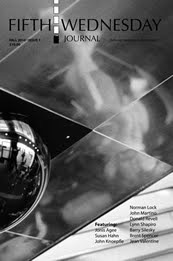 Fifth Wednesday Journal has announced its guest editors for their spring 2011 issue: Guest Poetry Editor: Michael Anania and Guest Fiction Editor: Carolyn Alessio.
Fifth Wednesday Journal has announced its guest editors for their spring 2011 issue: Guest Poetry Editor: Michael Anania and Guest Fiction Editor: Carolyn Alessio.
Spread the word!
Brave New World Banned
Nathan Hale High School (Seattle) has banned Aldous Huxley’s classic novel Brave New World. Oh, it is indeed a new world – though I’m not so sure it’s brave.
Spread the word!
Are Lesbians Going Extinct? Part Two
Trivia: Voices of Feminism 11, edited by Lise Weil and Betsy Warland, is the magazine’s longest issue published to date and the second in a two-part series featuring writers responding — in prose and poetry — to the question “Are Lesbians Going Extinct?”.
Contributors include Sima Rabinowitz, Verena Stefan, Kate Clinton, Lauren Crux, Sarah Schulman, Susan Hawthorne, Arleen Paré, Renate Stendhal, Urvashi Vaid, Erin Graham, Bev Jo, Christine Stark, Elana Dykewomon, Sharanpal Ruprai, Elizabeth X, Lyn Davis, Monica Meneghetti, Betsy Warland, Lise Weil, Harriet Ellenberger, and Michèle Causse.
Editor-in-chief Lisa Weil will be stepping down with this issue and the magazine is in search of new leadership. Information about the changeover and contacting the publication is available at the close of Weil’s editorial.
Spread the word!
Tribute to Ai
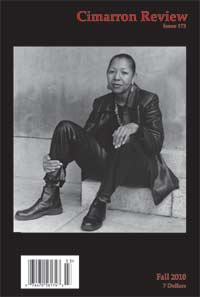 The most recent issue of Cimarron Review is a tribute to the poet Ai (1947 – 2010). Nonfiction includes works by Lisa Lewis, Guest Editor whose work “Ai in Oklahoma” opens the issue, Dagoberto Gilb (“Poet Ai” available online), Clay Matthews, Chip Livingston, Rigoberto González, and Janet Varnum’s interview with Ai. Works of poetry include authors Yun WangMonique S. Ferrell, Labecca Jones, Jeff Simpson, Kimiko Hahn (“Theft” available online), Samantha Thornhill, Patricia Smith (“The Day Before What Could be the Day” available online),Cyrus Cassells, Ralph Burns, Oliver de la Paz, and Marilyn Chin (“Naked I Come, Naked I Go” available online). Cover image by Christopher Felver – “The Poet Ai at the Los Angeles Book Fair.”
The most recent issue of Cimarron Review is a tribute to the poet Ai (1947 – 2010). Nonfiction includes works by Lisa Lewis, Guest Editor whose work “Ai in Oklahoma” opens the issue, Dagoberto Gilb (“Poet Ai” available online), Clay Matthews, Chip Livingston, Rigoberto González, and Janet Varnum’s interview with Ai. Works of poetry include authors Yun WangMonique S. Ferrell, Labecca Jones, Jeff Simpson, Kimiko Hahn (“Theft” available online), Samantha Thornhill, Patricia Smith (“The Day Before What Could be the Day” available online),Cyrus Cassells, Ralph Burns, Oliver de la Paz, and Marilyn Chin (“Naked I Come, Naked I Go” available online). Cover image by Christopher Felver – “The Poet Ai at the Los Angeles Book Fair.”
Spread the word!
Narrative Poetry Contest Winners
Narrative Magazine Second Annual Poetry Contest Winners
First Place: Kate Waldman
Second Place: Lillian-Yvonne Bertram
Third Place: Ezra Dan Feldman
Finalists:
Mermer Blakeslee
Laton Carter
Katharine Coles
Maria Hummel
Gray Jacobik
Jenifer Browne Lawrence
Lynn Melnick
Steve Price
Marsha Rabe
Christie Towers
The Narrative Magazine Fall 2010 Story Contest is still open to fiction and nonfiction. All entries will be considered for publication. Deadline: November 30, at midnight, Pacific standard time.
Spread the word!
Bookstore for Sale :: Globe Corner Bookstore
“Citing health reasons, the president of the Globe Corner Bookstore said yesterday that he plans to sell the 28-year-old Harvard Square travel book and map specialty shop and online store.” (Reading more: Boston.com)
Spread the word!
Remembering Bill Bauer
 The latest edition of Fiddlehead (Autumn 2010) includes “Remembering Bill Bauer (1932 – 2010)” an editorial by Brian Bartlett. Bill Bauer had been Co-Editor, Assistant Poetry Editor, and Poetry Editor for nearly ten years, then Fiction Co-Editor for two years, and published two full-length collections of poetry with Fiddlehead Poetry Books, along with several other collections of poetry and short stories. Bill Bauer was lost to his battle with cancer in June of 2010.
The latest edition of Fiddlehead (Autumn 2010) includes “Remembering Bill Bauer (1932 – 2010)” an editorial by Brian Bartlett. Bill Bauer had been Co-Editor, Assistant Poetry Editor, and Poetry Editor for nearly ten years, then Fiction Co-Editor for two years, and published two full-length collections of poetry with Fiddlehead Poetry Books, along with several other collections of poetry and short stories. Bill Bauer was lost to his battle with cancer in June of 2010.
The editorial is followed by several of Bauer’s poems, including one previously unpublished work.
Spread the word!
Some Advice on ePublishing
Previously mentioned in a post on the C4 Fiction Anthology, this online “bonus” published by the editors of C4 provides some honest insight on publishing and distributing an e-book: Publishers Lie and Other Lessons Learned from Publishing “The Chamber Four Fiction Anthology”. It’s the kind of advice people look for.
Spread the word!
CV2 Celebrates 35 Years
Canadian poetry lit mag Contemporary Verse 2 is celebrating 35 years of publishing. The newest issue (Summer 2010) is the first of two issues looking back over these three and a half decades – starting with “The Early Years” – the first ten years of the journal’s history. Included is an interview with Robert Enright, “CVII’s first book review editor and one of its founding staff,” and “some of the archival materials still in CVII’s posession, including originals of the late bpNichol – editorial reports and the one poem published by CVII.”
CVII is also planning a number of celebratory events and a coast to coast reading tour. Check their website for more information.
Spread the word!
Barns + Poetry + Art = Cool Stuff
 Artist Bill Dunlap was selected recently to do a series of murals on barns across Maryland. Each mural will be a text and image piece featuring poetry. The project is organized by the University of Maryland Art Gallery in College Park, and is called “Poetic Aesthetic in Rural Maryland.”
Artist Bill Dunlap was selected recently to do a series of murals on barns across Maryland. Each mural will be a text and image piece featuring poetry. The project is organized by the University of Maryland Art Gallery in College Park, and is called “Poetic Aesthetic in Rural Maryland.”
Why barns and why poetry? Dunlap writes on his blog, “I think it’s because they go so well together. This is a chance to bring art out of galleries and urban settings and put it in rural areas where it is rarely seen. And those kinds of peaceful settings are perfect places to take in a bit of poetry as well.”
Dunlap has completed the first mural on a barn near Gaithersburg, MD. The barn is owned by a company of glass blowers called The Art of Fire. The painting is 10 ft tall and about 43 ft long and features the poem “Lost” by David Wagoner.
Dunlap plans to complete five more murals throughout 2011.
Spread the word!
ALA Stonewall Book Award
 The first and most enduring award for GLBT books is the Stonewall Book Awards, sponsored by the American Library Association’s Gay, Lesbian, Bisexual, and Transgendered Round Table. Since Isabel Miller’s Patience and Sarah received the first award in 1971, many other books have been honored for exceptional merit relating to the gay/lesbian/bisexual/transgendered experience.
The first and most enduring award for GLBT books is the Stonewall Book Awards, sponsored by the American Library Association’s Gay, Lesbian, Bisexual, and Transgendered Round Table. Since Isabel Miller’s Patience and Sarah received the first award in 1971, many other books have been honored for exceptional merit relating to the gay/lesbian/bisexual/transgendered experience.
Spread the word!
A Richard Wilbur Symposium
 Field‘s Fall 2010 issue features a symposium on the work of Richard Wilbur, including his poem “The Beautiful Changes,” with essays by Bruce Weigl, Annie Finch, Steve Friebert and Stuart Friebert, DeSales Harrison, David Young, Beckian Fritz Goldberg, Carole Simmons Oles, and Stephen Tapscott.
Field‘s Fall 2010 issue features a symposium on the work of Richard Wilbur, including his poem “The Beautiful Changes,” with essays by Bruce Weigl, Annie Finch, Steve Friebert and Stuart Friebert, DeSales Harrison, David Young, Beckian Fritz Goldberg, Carole Simmons Oles, and Stephen Tapscott.
Spread the word!
Soft Skull Press Closes New York
“Soft Skull Press, the indie publisher that was rescued from financial ruin when it was acquired by the Berkeley-based publisher Counterpoint in 2007, became a West Coast outfit on Friday after 17 years in New York with the closing of its office in the Flatiron District. Both of its full-time staffers, editorial director Denise Oswald and associate editor Anne Horowitz, were laid off, and titles that were already in the pipeline have been reassigned to editors at Counterpoint…” Read the rest on The New York Observer Media Mobster.
Spread the word!
New Lit on the Block :: and/or
Editor-in-Chief Damian W. Hey, Art Editor George Kayaian, Literary Editor Tracy Kline, and Managing Editor Mike Russo are the working force behind and/or, a PDF (Issue) and print journal “for creative experimental writing and/or innovative graphic art.”
Hey writes in the editorial for the first issue: “What is experimental to one person may be old hat to another. In general, we have sought to include works that represent as broad an experimental spectrum as possible. We have given preference to those works that provoke the reader or the viewer to question some aspect of tradition, convention, or expectation. We have looked for writing that teaches the reader how to read it, and art that teaches the viewer how to view it. And, in our evaluation of submitted work, we were not beyond the occasional outburst of: we know the good stuff when we see it!”
The first 100+ page issue of and/or features works by Carol Agee, Tanner Almon, George Anderson, Michael Andreoni, Jenn Blair, Ric Carfagna, James Carpenter, Brian Cogan, Kirk Curnutt, Nicole Dahlke, Arkava Das, Tray Drumhann, Joseph Farley, Adam Field, Howie Good, Thomas Gough, Aimee Herman, Jared Joseph, Mark L.O. Kempf, Ron. Lavalette, Donal Mahoney, Ricky Massengale, RC Miller, Antoine Monmarche, Kyle Muntz, Christina Murphy, Matt Parsons, Dawn Pendergast, Michael Lee Rattigan, Francis Raven, Mary Rogers-Grantham, Christine Salek, Chad Scheel, James Short, Bruce Stater and Lori Connerly, Felino A. Soriano, Orchid Tierney, David Tomaloff, Echezona Udeze, Justin Varner, and Christopher Woods.
The journal seeks submissions from writers and/or other sorts of artists whose work openly challenges the boundaries (mimetic, aesthetic, symbolic, cultural, political, philosophical, economic, spiritual, etc.) of literary and/or artistic expression. The deadline for Volume 2 is March 1, 2011.
Spread the word!
No More White Elephant Gift Exchanges?
Amazon patents a bad gift defense system to stop bad gifts before they’re even sent.
Spread the word!
Word & Film Website
 Random House has created a new website Word & Film: The Intersection of Books, Movies, and Television and includes trailers and interviews for both theater films and television.
Random House has created a new website Word & Film: The Intersection of Books, Movies, and Television and includes trailers and interviews for both theater films and television.
Spread the word!
Brownstone Books Closes
 Bed-Stuy Do or Die: Brownstone Books in Brooklyn, NY shuts down.
Bed-Stuy Do or Die: Brownstone Books in Brooklyn, NY shuts down.
